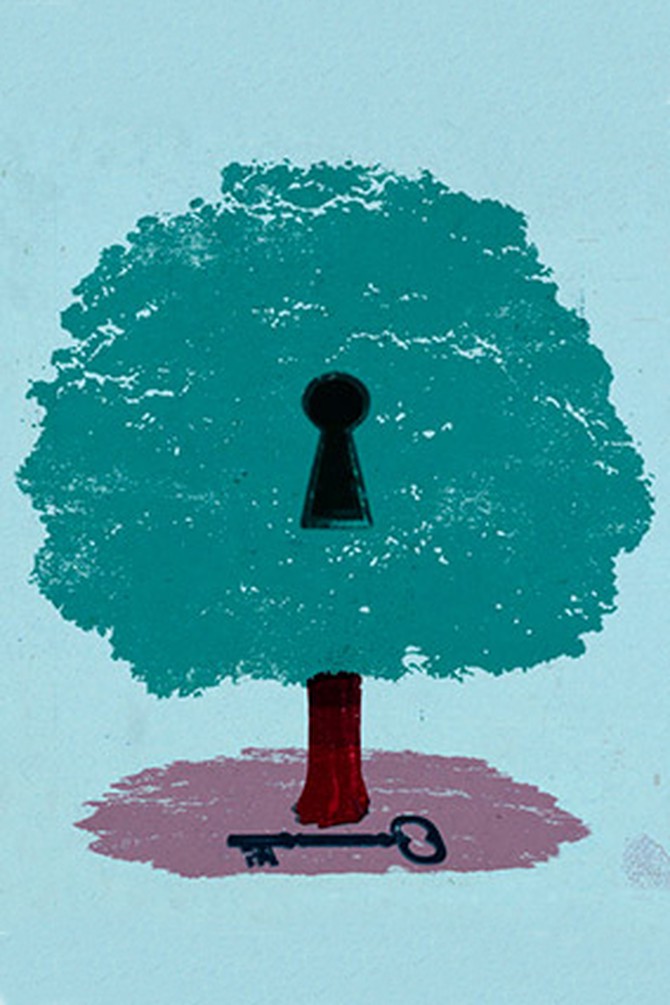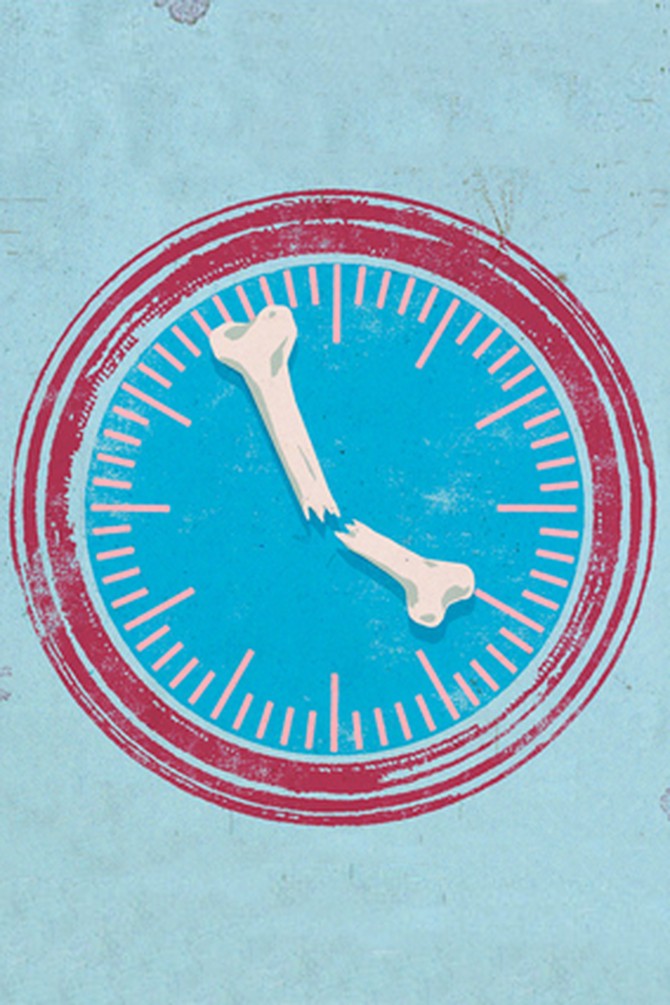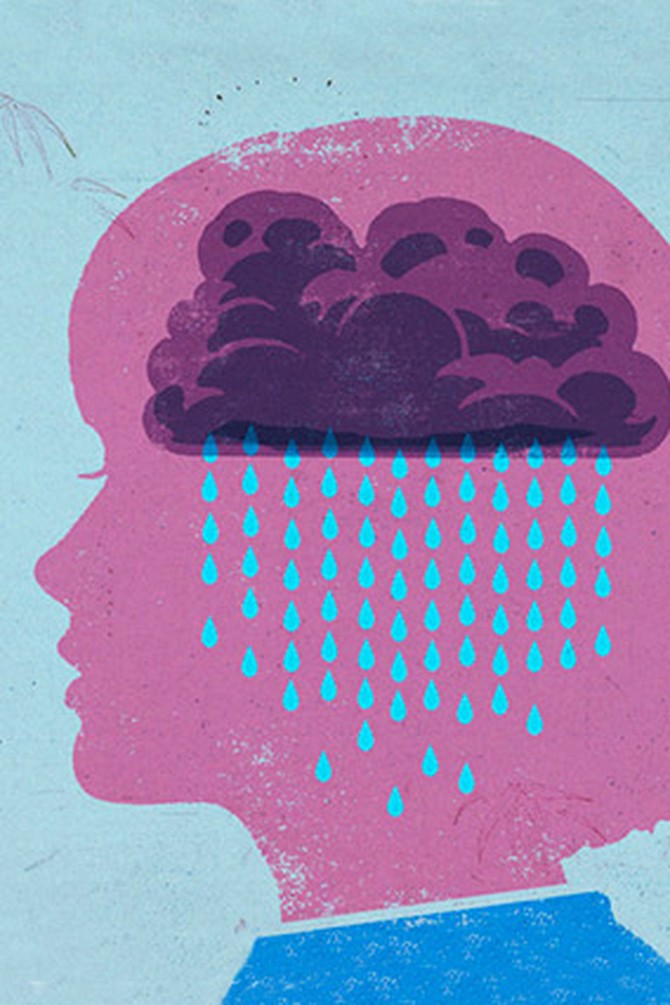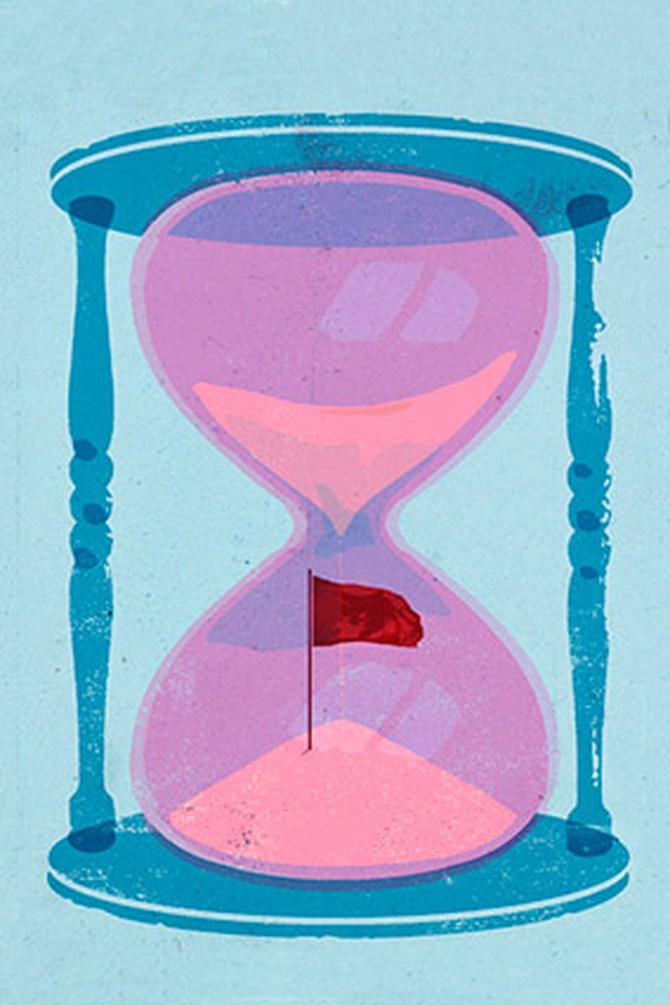When my doctor discovered a precancerous polyp in my colon in 2010, my first worry was whether I might have passed the genes linked to colon cancer on to my children. Though the polyp was safely removed, I couldn't stop thinking that the same genes that put me at risk might haunt my kids when they get older. I know I can't prevent that from happening, but by telling them about our family history of colon cancer, I can give them the information they need to fight it.
Being at increased risk for a disease doesn't mean you have to resign yourself to getting it. On the contrary: Knowing what may be lurking in your DNA is one of the most powerful tools you have to save your own life. If you're aware of what to watch out for, you can take steps to prevent illness and stay healthy.
When your parents, aunts, uncles, and cousins gather together this holiday season, I want you to put it all on the table. These topics might be difficult to discuss, but doing so will benefit you and your loved ones in the long run. Write down all the facts you collect and share them with your doctor; a comprehensive medical history will help her better identify risk factors you may have overlooked and monitor you for early warning signs of disease. Here are the five questions you need to ask.
Illustration: Richard Mia
How did our family members pass away?
One of the most important steps in decoding your health history is establishing which diseases claimed family members' lives. Look back three generations and pay particular attention to any conditions that affected more than one of your close relatives—especially combinations of diseases, like breast cancer and ovarian cancer. (A rare genetic mutation increases the risk that breast and ovarian cancer will develop within families, so if your mother had ovarian cancer and her sister had breast cancer, you may carry the gene.) But it's not enough to talk about the causes of death—you need to know about underlying health issues that could have been the real culprit. Say, for instance, your grandfather died of a heart attack; you'd want to learn whether it was triggered by unusually high cholesterol, a condition that can be genetic. If it does appear that a disease runs in your family, you might want to consider talking to your primary care doctor about genetic testing, in which a blood sample or cheek swab can reveal whether you actually carry the gene for the illness. (Tests have been developed to identify more than 2,500 diseases.) If you do carry the gene for a preventable or treatable condition, like high cholesterol, your doctor can help you take steps to stop it from developing or to keep it under control.
Illustration: Richard Mia
When was the last time you broke a bone?
This question may seem random, but nearly half of all women and a quarter of men over 50 will break a bone due to osteoporosis. If two or more relatives showed symptoms of bone loss before age 55, you'll be nearly 8.5 times more likely to suffer from it yourself, according to one study. Because osteoporosis is considered a "silent" disease, you might not know you have it until it leads to injury. With the right information, however, it's largely preventable, especially if you start safeguarding early on. Though you should routinely wear sunscreen, I tell my patients to get their weekly dose of bone-strengthening vitamin D by spending no more than ten minutes in the sun without it at least three times per week.
Illustration: Richard Mia
Anyone feeling particularly down lately?
Asking your relatives about their emotional state may cause some awkwardness, but it's crucial. Despite the fact that depression affects more than 20 million Americans, it is one of the most underdiagnosed family illnesses. If your relatives are reluctant to open up, tell them this: Research shows that 40 to 50 percent of depression cases appear to be genetic. In fact, depression is so deeply entwined with family history that one of the first questions asked by mental health providers is whether relatives have ever suffered from it. If you discover a pattern in your family, alert your doctor and be watchful for the signs, like losing interest in activities you normally enjoy or feeling sad all day for more than two weeks.
Illustration: Richard Mia
What medications are you taking? Any side effects?
Ask everyone in your family to list the prescription meds they take. Notice an abundance of beta-blockers or other blood pressure medications? Having one or more immediate family members with high blood pressure before the age of 60 doubles your risk of developing it. It's also important to find out which meds relatives have been taken off, and whether it was because the drug didn't work or because it caused adverse side effects. Drug sensitivity—how people react to and metabolize medications—is a major component of health history that's too often ignored. If several relatives have responded negatively to one drug, those sensitivities may be genetic. There's no guarantee you'll also have a bad reaction, but telling your doctor could improve your treatment options if you develop the same ailment later in life.
Illustration: Richard Mia
Has anyone under 55 battled a chronic or severe illness?
It's important to know what diseases run in your family, but you also need to know when they started. A red flag is early onset, which is generally defined as ten to 20 years before serious conditions normally appear in healthy adults. A new Danish study found that people with a parent, sibling, or child who died from heart disease before age 60 were twice as likely to develop it. Alzheimer's disease is another one you should track—having a parent who developed it before age 65 means you have a 50 percent chance of inheriting a genetic mutation that may cause early onset of the disease. While Alzheimer's can't yet be prevented, it's still worth knowing if you're at risk. Scientists are constantly discovering new ways to prevent or slow the progression of certain incurable illnesses (a recent study suggests that a diet high in omega-3 fatty acids may prevent the development of Alzheimer's). Remember, this isn't about dwelling on mortality; it's about arming yourself with information that can improve and extend your life—and the lives of future generations.
What to Do if You Can't Talk to Your Family
1. Follow your paper trail.
Birth certificates will help you piece together your family tree. Death certificates—which list cause of death, age at death, and may even include chronic medical conditions—will help you gather clues for possible genetic links. If you don't have these documents, track them down at your local or state health department.
2. Check adoption agency records.
If you were adopted, go to childwelfare.gov/nfcad, where you can find state-by-state adoption registry information. Then contact the organization in the state where you were adopted to get help locating your file, which may include nonidentifying health information about your birth parents.
3. Consider your ethnicity.
Can't get any family records? Ask your doctor about diseases that may be linked with your ethnic background. For example, African-Americans are 1.8 times more likely to develop type 2 diabetes than Caucasians. Native Hawaiians also have a higher risk of type 2 diabetes, and if you're of Asian ancestry, you may be at high risk for developing osteoporosis.
Next: 10 simple habits that could help you live to 100







